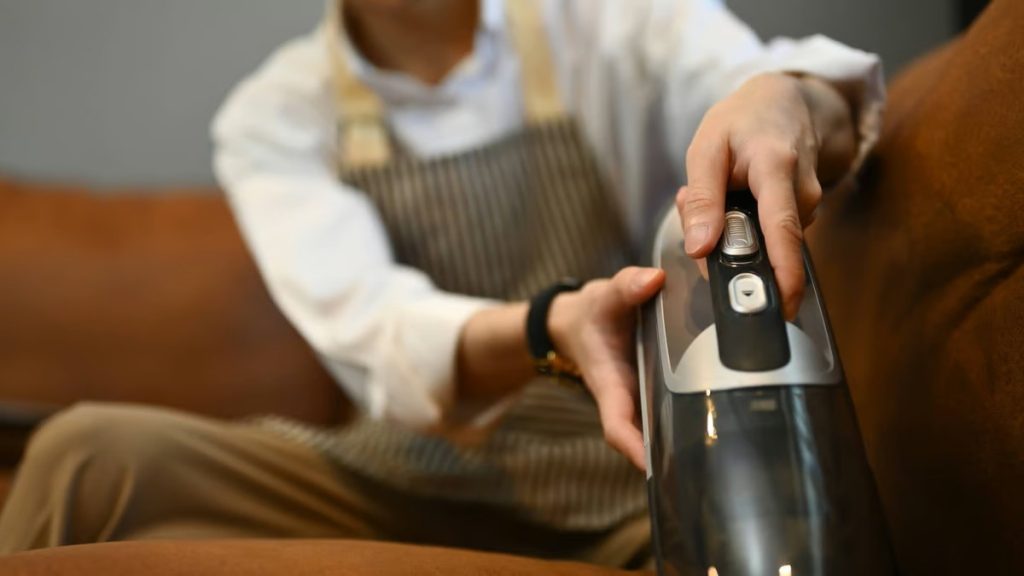In the grand tapestry of human innovation, few inventions have transformed daily chores as dramatically as the vacuum cleaner. From its humble beginnings in the late 19th century to the sleek, automated gadgets of today, this device has sucked up not just dirt and debris, but also a significant place in our cultural and technological history. National Create a Vacuum Day, celebrated on February 4th, might raise eyebrows with its quirky name, but it underscores a profound truth: vacuums are pivotal in our quest for clean, healthy living spaces. Imagine the evolution from Ives W. McGaffey's hand-cranked contraption to Hubert Cecil Booth's horse-drawn "Puffing Billy," and finally to the compact, whisper-quiet machines that navigate our homes today. This journey isn't just about better dust bunnies; it's a reflection of human ingenuity and our relentless pursuit of convenience and efficiency. As we celebrate this unusual holiday, let's pause and consider: how did a machine designed to suck up dirt become such an indispensable part of modern life?
Key Takeaway
Timeline
Day Activities
-
Kick things off with a DIY vacuum science experiment. Gather household items like a plastic bottle, scissors, and a balloon to create a simple vacuum. This hands-on activity not only sparks creativity but also sheds light on the principles of air pressure and suction, making science fun and accessible.
-
Next, host a vacuum-themed trivia game. Dive into the history of vacuum cleaners, from the hand-cranked models of the 19th century to today's high-tech robotic vacuums. This is a fantastic way to engage friends and family, testing their knowledge while sharing fascinating facts about these indispensable household tools.
-
Finally, why not organize a community clean-up using vacuums? Whether it's sprucing up local community centers or helping neighbors tidy their homes, this activity emphasizes the spirit of service and the role of vacuums in maintaining cleanliness. Plus, it's a great way to connect with others and make a tangible difference in your community.
Why We Love This Day
-
Celebrating innovation and convenience: National Create a Vacuum Day shines a spotlight on the incredible journey from manual cleaning methods to the high-tech, hassle-free vacuum cleaners we rely on today. Who'd have thought that from a bulky, horse-drawn contraption, we'd move to sleek, robot vacuums zipping around, doing the dirty work for us? It's a day to marvel at human ingenuity and how it's made keeping our spaces spick and span a whole lot easier.
-
A nod to history and progress: This quirky holiday not only celebrates the past achievements of inventors like Ives W. McGaffey and Hubert Cecil Booth but also encourages us to appreciate the leaps and bounds in technology that have transformed everyday chores. From the first hand-cranked models to the latest in automated cleaning tech, vacuums have come a long way. It's fascinating to see how each innovation paved the way for the next, making our lives more convenient one suction at a time.
-
Promoting a cleaner, healthier environment: Beyond the bells and whistles of vacuum technology, National Create a Vacuum Day reminds us of the importance of maintaining clean living and working spaces. Vacuums don't just tidy up; they help improve indoor air quality by sucking up dust and allergens that can wreak havoc on our health. So, while we're geeking out over the latest vacuum models, let's also remember to put them to good use for the sake of our well-being.
Past & Future Dates
| Month | Day | Year |
|---|---|---|
| FEBRUARY | 4 | 2022 |
| FEBRUARY | 4 | 2023 |
| FEBRUARY | 4 | 2024 |
| FEBRUARY | 4 | 2025 |
| FEBRUARY | 4 | 2026 |
| FEBRUARY | 4 | 2027 |
| FEBRUARY | 4 | 2028 |
FAQ
What is February 4th national day?
NATIONAL HEMP DAY – February 4 got its claim to fame in 2019, thanks to National Day Calendar® and cbdMD lighting up the scene.
What does create a vacuum mean?
To create a vacuum means leaving a space unfilled. Imagine if your favorite cookie was missing from the jar; that's akin to the gap felt when something or someone vital isn't around anymore. It's all about that missing puzzle piece in the grand scheme of things.
What national holiday is on February 4 2024?
On February 4, 2024, get ready to cozy up with NATIONAL HOMEMADE SOUP DAY, go green with NATIONAL HEMP DAY, experience the emptiness with NATIONAL CREATE A VACUUM DAY, and share some love with NATIONAL THANK A MAIL CARRIER DAY. A day truly packed with flavor, eco-friendliness, science, and gratitude.
How to create a vacuum?
Want a vacuum without the hassle? Grab a suction cup! Stick it onto a wall, pull back, and voila, you've got yourself a vacuum, just like magic. That's why it refuses to budge. You can even try this with a syringe for a DIY science experiment.
